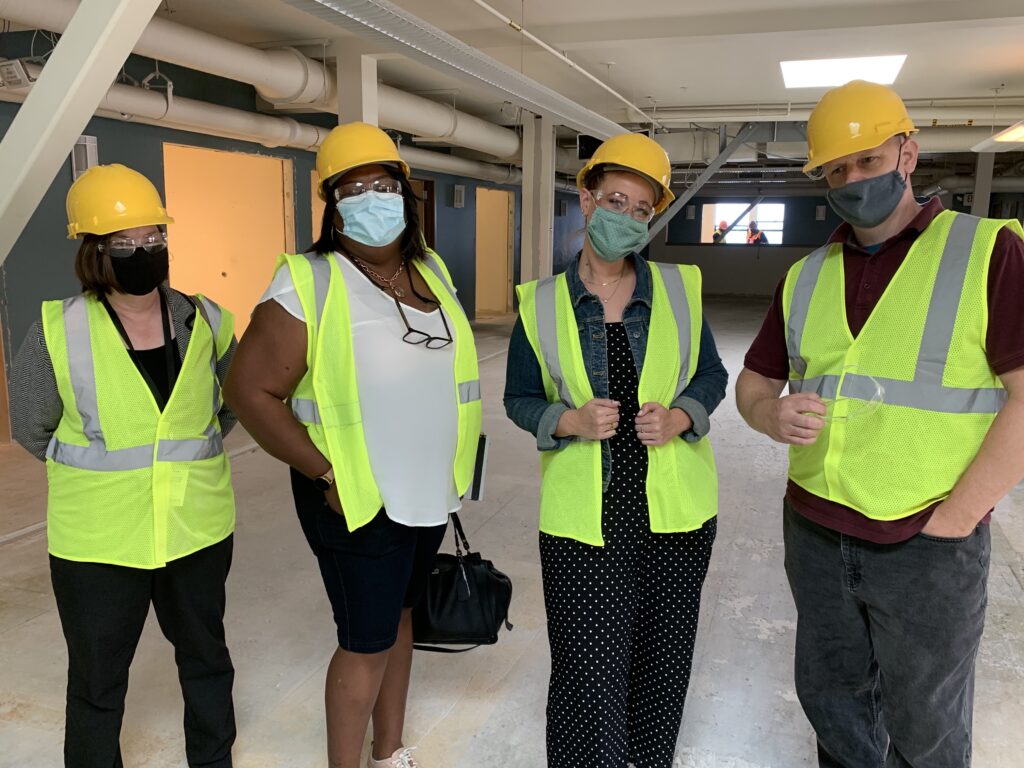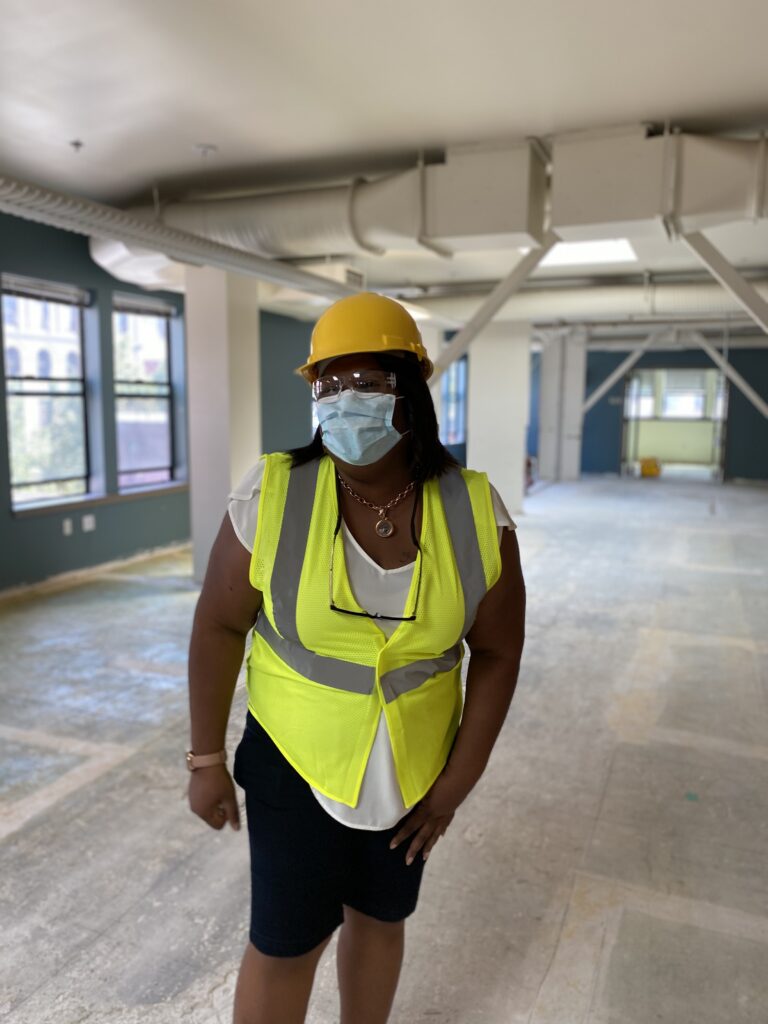
| Compass Housing Alliance (Compass) is enhancing the Compass Center in Pioneer Square by bringing an emergency housing program over from a location we have at First Presbyterian Church downtown, restructuring three floors of the building, and putting in other structural changes to enhance safety. Mary Steele, Interim Executive Director, and Nikkole Scott, Program Manager at Compass at First Presbyterian (CFP) explained how the restructuring will work to Nathan Jackson, the Communications Manager. Nathan: Tell me a little bit about the remodel at Compass Center. Mary Steele, Interim Executive Director: The reason we are doing it is two-fold. We knew we were losing the space at First Presbyterian Church up on First Hill and we knew we would not have that space at the end of this year. We needed a solution that would accommodate 100 people who rely on us for the shelter and stability they need to move off the streets. So that in conjunction with COVID, the need to provide more socially distanced spaces for those folks, led to this project. This project will allow us to accommodate all the people who were at First Presbyterian and also provide them with individual carrels that will be healthier and easier to clean during this time of COVID. We moved our administration offices, finance, HR, and more to clear up space for this remodel. Nathan: What is it going to look like with those individual living spaces? Mary: We looked at several solutions and we will be building individual living spaces called carrels using standard construction techniques. We will be using drywall, but that drywall will be covered with something called FRP the very standard, hygienic solution that is used in commercial kitchens. It’s very easy to clean and wipe down and sanitize. Nathan: Will these living spaces be assigned to folks or is it first come first serve? Mary: Everyone in our shelters has an assigned space. When anyone is assigned to Compass emergency housing they get an intake, we learn about them and then they get their own space. Every carrel will have some storage. It’s not abundant, but it is essentially the size of a couple of storage lockers. We’ve found that if people don’t have a safe place to store their belongings that can keep them from coming in. Nathan: How is Compass paying for all this? Mary: Through grants through the city and county. Those grants came available because of the COVID crisis. Nathan: Are folks from CFP all moving over to the Compass Center, or are we going to have all new guests? Mary: We always have turnover because one of the goals for providing emergency housing is to move them into permanent housing. Our hope is for our guests to all move to permanent housing. Nathan: How does moving people into permanent housing work Mary: We have housing navigators at all our shelters and their goal is to work with everyone to find out what will work for them. For some people it might mean going back to a relative, we also have a little bit of flexible funding that can help assist with first and last payments for apartments. Many of the people we work with are employed so if they could just get into a place, they would be able to maintain the rent. Sometimes we even refer people to other organizations that have more funding available for helping folks cover those upfront costs. |

| Nathan: Tell me a little bit about CFP. Nikkole, Program Manager (seen to the right): CFP is a 24-hour 7 day a week enhanced shelter. We shelter 80 men and 20 women, and we were sent these folks from the city’s navigation team. When people come to CFP they know that they are there for a different experience from what they would expect in a shelter. In fact, I don’t even like the word shelter, I like to focus on the enhanced part. |
When a guest comes to CFP they know they are going to get assistance with employment, housing, getting IDs, social security cards, birth certificates, and anything else they need to make their housing plan more successful. We have four housing navigators that are great. We have a good record of housing our guests. It isn’t always a success, but our guests know that if they need to come back, they can. We build a rapport with people, and once they know us and communicate with us they realize that I’m not there to strip them of their dignity — that’s been done to them enough.
When they trust you, they will start telling you things. A lot of times people are homeless because they just don’t have that support. Trust is when the doors start to open.
Nathan: How do you build community in emergency housing?
Nikkole: You build a community by communicating. We have weekly community meetings and when I start off, I start off with a joke. I let the guests have a chance to say something and check-in. We aren’t here to point fingers; we aren’t here to make anyone feel less than. The guests have a chance to raise up concerns or grievances with me. They just want to be heard and they want to be valued.
People who are homeless are people — they aren’t dumb or illiterate. A lot of people underestimate them, but they just need time to just sit and feel safe.
Nathan: How will you build the same kind of community at the new location?
Nikkole: I’m excited even though change is scary. We are going to have community meetings. We are going to get to know the other staff at the Compass Center. We are going to be a good neighbor in Pioneer Square and get to know the businesses and residents around there. We are going to get out into the community — we are going to be a part of it.